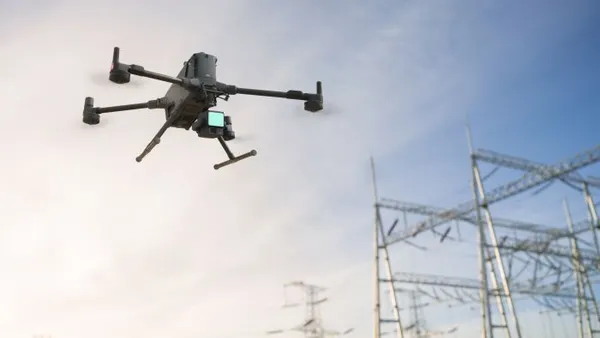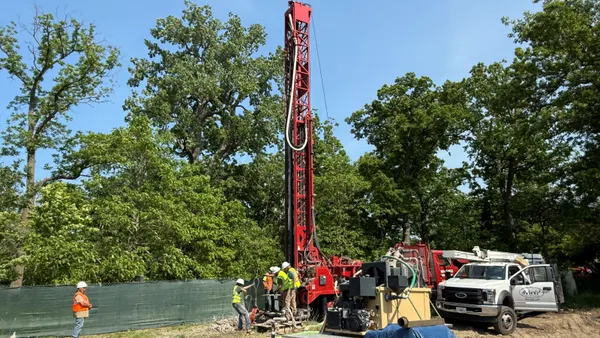From ancient Egyptian pulley systems to modern artificial intelligence, construction technology has transformed dramatically over the centuries. What once took thousands of workers decades to build can now be accomplished by smaller teams in a fraction of the time. And yet no technological evolution has eliminated jobs but rather reshaped how construction professionals work and the value they deliver.
Today, AI stands as construction's newest frontier, with many industry leaders citing fear of job displacement as their primary concern about adoption. This anxiety is understandable, yet misplaced. In reality, AI is proving to be the ultimate career accelerator—a tool that eliminates mundane tasks while amplifying human expertise. Projects using AI-assisted workflows report fewer rework incidents and complete documentation review 5x faster than manual processes.
This article explores how forward-thinking professionals at leading development and contracting firms are embracing AI not as a replacement, but as a powerful ally that enhances their capabilities, showcases their expertise, and advances their careers. Their experiences reveal a compelling truth: those who master AI tools today are positioning themselves as the indispensable construction leaders of tomorrow.
Amplifying Efficiency for Strategic Impact
Today's construction professionals didn't invest years in specialized education to spend 60% of their workweek on repetitive manual tasks. Yet preconstruction specialists routinely dedicate 15-20 hours per project just to sheet-by-sheet design review—identifying discrepancies, checking dimensions, and cross-referencing specifications across hundreds of documents.
This reality creates a critical efficiency gap. Construction professionals want to add value through their ability to apply judgment, negotiate complex problems, and leverage their expertise—not by who can manually count door types fastest.
AI bridges this gap by automating the meticulous and methodical examination aspects of document review while preserving the essential human elements of decision-making and expertise. The technology functions like the difference between framing a house with a hammer versus a pneumatic nailer—same expertise required, dramatically different output capacity.
Efficiency Gains
At Flintco, AI implementation has transformed their document review process. “Firmus AI meticulously completes the more repetitive ‘mundane’ tasks required during a review with great efficiency and accuracy,” said Michael Thole, Director, Corporate Quality. “Using Firmus allows our preconstruction teams to focus on the technical aspects of the design while delivering a reliable and thorough plan check of the drawing set itself.”
This efficiency revolution extends beyond time savings. Nibbi Brothers General Contractors has documented how AI augmentation helps their QA/QC managers maintain consistency across multiple concurrent projects. “Having a tool like Firmus, with the number of projects we have at any given time, helps accelerate the rate at which we can turn the projects around,” said Anita Hsieh, AIA, QA Project Manager.
The downstream impact is equally significant. When operations teams receive thoroughly vetted documentation, they avoid costly mid-project discoveries. “At the end of the day, I can sleep better knowing I did as thorough a job as I could with the tools I had,” said Hsieh.
For construction professionals looking to maximize their career impact, the equation is simple: AI handles the examination tasks, you deliver the judgment, creativity, and leadership that machines cannot replicate. The result is more strategic contribution, higher value work, and greater recognition—career advancement through augmented capability rather than hours spent on manual processing.
Superhuman Accuracy: Beyond What Even Expert Eyes Can See
The construction industry experienced a fundamental transformation when CAD software replaced drafting tables in the 1980s. This technological shift wasn't simply about speed—it delivered unprecedented precision that even the steadiest human hand couldn't match. A similar revolution is now unfolding as AI analyzes construction documents with a consistency and thoroughness that transforms how professionals detect potential issues.
The Limits of Human Review
Even the most experienced construction professionals face cognitive limitations when reviewing complex document sets:
- The average commercial project generates 4,000+ pages of construction documents
- Human reviewers typically experience a 23% decline in error detection after 2 hours of continuous review
- Studies show 70% of construction rework stems from documentation inconsistencies that weren't caught during pre-construction
Human expertise is irreplaceable for comprehending design intent and making sound judgment calls. However, when it comes to processing thousands of document elements for inconsistencies, human minds simply aren't designed for that scale of pattern recognition.










